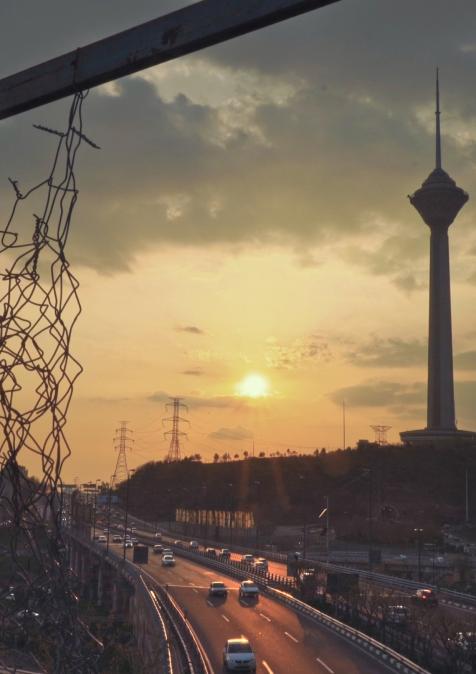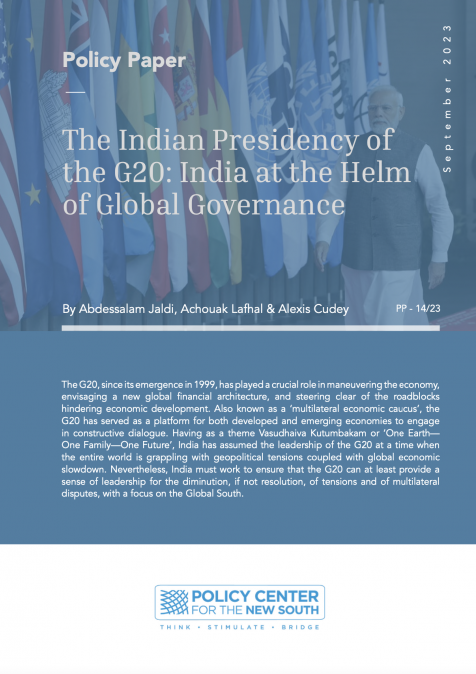Publications /
Opinion
The destruction of a vibrant and historic nation, sprinkled with color and culture, turned into a footnote of geopolitics. The more than 377,000 war victims disappeared from global headlines. The official fighting ended in Yemen on March 29, 2022. A ceasefire was declared by the Saudi Arabia-led coalition and the rebellious Houthis. China’s foreign minister, Wang Yi, praised “the wave of reconciliation” that swept across the region. The main foreign supporter of Yemen’s Houthi—Iran—started praising the new spirit of cooperation with Riyadh (Aljazeera, August 21, 2023). In a phone call with his Iranian counterpart Hossein Amir-Abdollahian (reported by China’s Xinhua news agency), Mr Wang assured the Iranian diplomat that Beijing appreciated Iran’s recent steps to improve ties with Saudi Arabia, including Amir-Abdollahian’s meeting with Saudi Arabia’s Crown Prince, Mohamed bin Salman, in Jeddah, in August 2023. “The surprise détente between Iran and Saudi Arabia brokered by China in March”, observed Ajazeera, “followed years of bitter rivalry that had destabilized several Middle East countries including Iraq, Syria, Lebanon, Yemen and Bahrain”.
The China-brokered diplomatic agreement between Saudi Arabia and Iran, and the ceasefire talks in Yemen, wrote Eric Lob, Associate Professor of Politics and International Relations at Florida International University, in a policy paper for the Washington-based think tank Stimson (July 26, 2023), “should increase Africa’s diplomatic flexibility to develop closer ties with Iran, without being caught in zero-sum, Middle Eastern and sectarian rivalry”. But the entente cordiale between Tehran and Riyadh has turned into a mirage. The wave of reconciliation celebrated by Beijing lasted not even one year. Reuters reported (January 21, 2024) that Iranian and Hezbollah commanders “are directing Houthi attacks in Yemen”, and even beyond its borders—towards sites in Israel, for example.
For the Houthis, Israel is an enemy—the Jews are the savage oppressors of the Gaza Palestinians. Recently, the Houthi have fired missiles at U.S. warships in the Red Sea. U.S. Navy destroyers, and a distant aircraft carrier, are trying to protect mega containerships and giant oil tankers against Houthi pirates, who are attempting to confiscate valuable cargo. British and American fighter jets, launched from Cyprus, responded to missile attacks by bombing Houthi sites in Yemen, including the capital Sana’a. Other U.S. units, helicopters dispatched by a U.S. guided-missile destroyer, sank at least three small Houthi boats, killing ten men, who attempted to board a container ship passing through the Bab-el-Mandeb strait into the Red Sea (Aljazeera, January 1, 2024).
The Israeli/Palestine showdown, noted The Guardian ( January 7, 2024) “is bleeding across borders”, the conflict possibly escalating into a regional or even global war. How would the Pentagon react if Houthi missiles hit an American aircraft carrier in the region, jet fighters were destroyed, or navy pilots killed? A prolonged conflict in the Red Sea, one of the major global shipping lanes, and escalating tensions across the Middle East, “risk having devastating effects on the global economy, reigniting inflation and disrupting energy supplies, some of the leading economies warn” (The Guardian, January, 13, 2024).
Differently said: “Red Sea shipping takes another blow from Iran” (Foreign Policy, January, 8, 2024). Iran is arming Hamas, supporting Hezbollah in Lebanon, guiding the Houthis, supporting radical groups in Bahrain and a Shia militia in Baghdad, and there is no end in sight. At the World Economic Forum in Davos, Switzerland, Amir-Abdollahian insisted that attacks on Israel will end only if the Gaza war stops (Reuters, January 17, 2024). “The Red Sea is tied to the developments and everyone will suffer if Israel’s crimes in Gaza will not stop”. Tehran, no doubt, is attempting to extend its political and military influence in the region and beyond. Iran is allegedly the main supplier of missiles and drones smuggled via Egypt or the sea, used by Hamas for their ongoing attacks on Israel.
Until a few months ago, the Islamic Republic had other priorities. In his annual speech on the Nowruz—the Persian New Year, which fell on March 21, 2023—Ayatollah Ali Khamenei declared “strong relations with Africa and Latin America are part of our definite agenda and God willing, we will pursue this plan”. On July 1, 2023, Iran’s President Ebrahim Raisi embarked on a tour of Africa. The trip marked the first time an Iranian President visited the continent in a decade. It was “A new beginning of Iran/African relations”, noted the Geopolitical Monitor (July 26, 2023). The article’s author, Arman Sidhu, explaining that in “recent years, Iran’s geopolitical focus has been expanding beyond its immediate region, a striking illustration of this approach is the nation’s deepening engagement with East Africa, with Uganda, Kenya and Zimbabwe becoming local points of Iran’s Africa policy”.
For three days, Raisi and his delegation, including Iran’s foreign minister and various business leaders, visited Kenya, Uganda, and Zimbabwe. In an exposé, ‘Iran’s scramble for Sub-Saharan Africa’, author Jeffrey Lefebre (Insight Turkey, March 11, 2019) observed that “Iranian oil revenues have encouraged and allowed Tehran under the rule of Shah Mouhamad Reza Pahlavi (1941-1979) and, since 1979 as the Islamic Republic of Iran, to intervene in sub-Saharan affairs”. Eric Lob, for the Washington-based Stimson, recalled that Raisi’s predecessor Hassan Rouhani disengaged from the continent in his first term, while focusing on nuclear negotiations with the U.S. and other world powers. Rouhani received only the leaders of South Africa, Ghana, and Zimbabwe in Tehran. That disinterest, wrote Lob, “left the region open to diplomacy by Iran’s wealthy regional rivals, Saudi Arabia and the United Arab Emirates. Many African countries led the Saudi led coalition in Yemen and cut formal ties with Tehran, when Riyadh did in 2016”, as Djibouti, Sudan and the Comoros as well as Gulf nation Bahrain
Stepping Up its Diplomatic Blitz
It was against this backdrop that Raisi sought to salvage relations and diminish Iran’s growing isolation after the U.S. withdrew from the Iran nuclear deal and reimposed sanctions in 2018. The African trip followed a Raisi mission to three Latin American countries—Venezuela, Cuba, Nicaragua—which have been ostracized by Washington, considering them as menacing allies of Moscow. The German Institute for Global and Area Studies (GIGA), in December of 2022, published a report, ‘Bolstering the Bromances: Turkey’s and Iran’s tightening ties with Africa’, in which the authors, Mia Demirdirek and Hamid Talebian, stated: “In terms of Iran, Africa has played a crucial role in its international status-seeking agenda and intermittently as an economic survival sphere in times of deteriorating Iranian relations with the west”.
Colonel Jacques Neriah, a special analyst on the Middle East at the Jerusalem Center For Public Affairs, and former foreign policy advisor to former Israeli prime minister Yitzhak Rabin, pointed to Iran “stepping up its diplomatic blitz”, focusing on Eastern and Northern Africa (July, 20, 2023), Sudan and Algeria. Iranian and African suspended projectsare being reactivated, revealed the German Institute for Global and Area Studies, “many of which after nearly a decade of absolute silence”. The first Iran-Burundi working group was held August, 2022, resulting in several signed cooperation agreements in domains including agriculture, mining, investment, and healthcare and medical services. Similar bilateral deals, noted GIGA, have been negotiated with Mauritius, Nigeria, Senegal, Mali, Gabon, Nigeria, and South Africa. Military officials have “expressed their willingness to expand Iran’s military industry, particularly through supporting military technology and products to any country deemed ‘friend’”. For the first time in 17 years, a top politician from Libya visited Tehran in July 2023. Iran stated to Libyan foreign minister Najla El Mangoush its willingness to help rebuild the North African nation (Xinhua, July 25, 2023), no doubt another attempt to liberate itself from growing isolation.
Even if economically weak or politically vulnerable, African partners have been supportive and helpful to Tehran in different spheres, confirmed the Hamburg-based German Institute for Global and Area Studies. Kenya, Zimbabwe, and Uganda, have held seats and memberships in important multilateral institutions, including the UN Security Council, the UN General Assembly, and the International Atomic Energy Agency’s Board of Governors. As such they have occasionally been able to tone down pivotal votes, restrictions, and U.S. sanctions against Iran’s nuclear program and human rights record. Furthermore, Uganda and Zimbabwe produce and export uranium, the main resource for Iran’s expanding nuclear program. Dramatic headlines, according to recent revelations from the Washington-based Institute for Science and International Security (January 8, 2024) may soon alert the world that Tehran is close to manufacturing a nuclear weapon. Tehran seems only “a hair breadth away” from producing enough weapons-grade uranium for its first nuclear weapon. Iran could have “enough weapons-grade uranium for six weapons in one month”.






